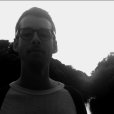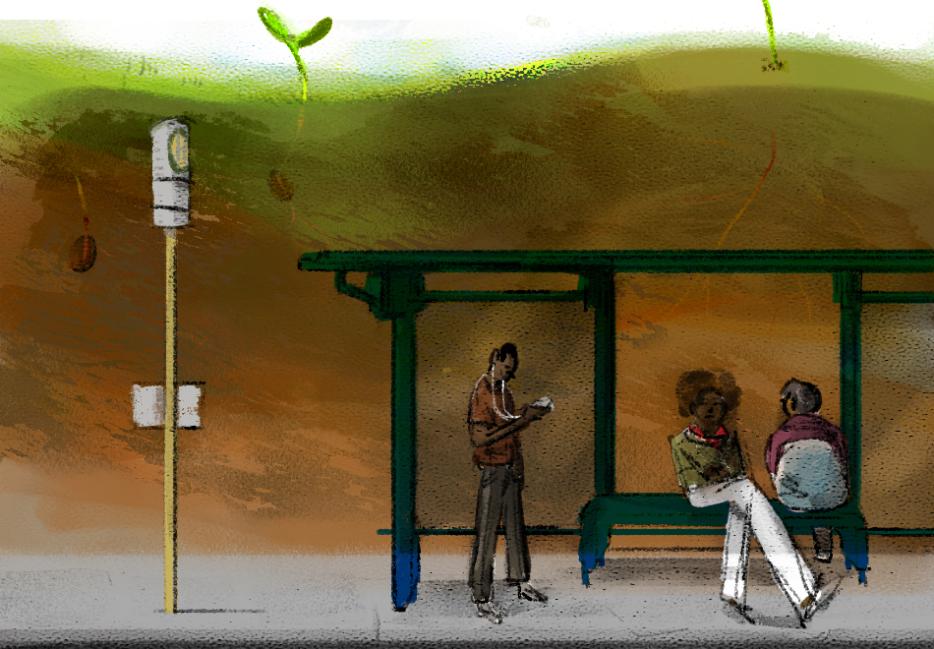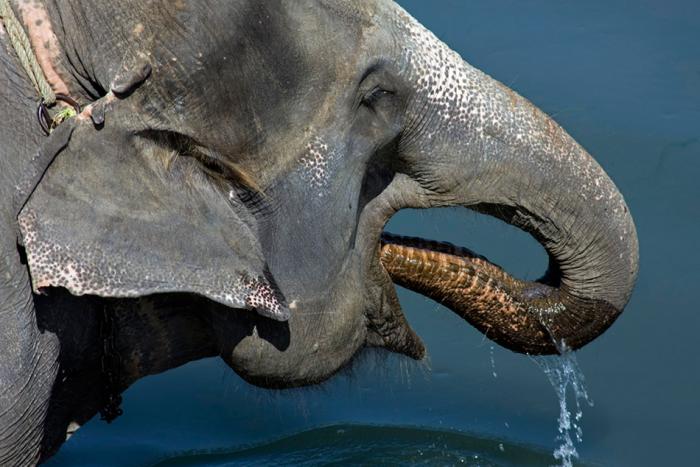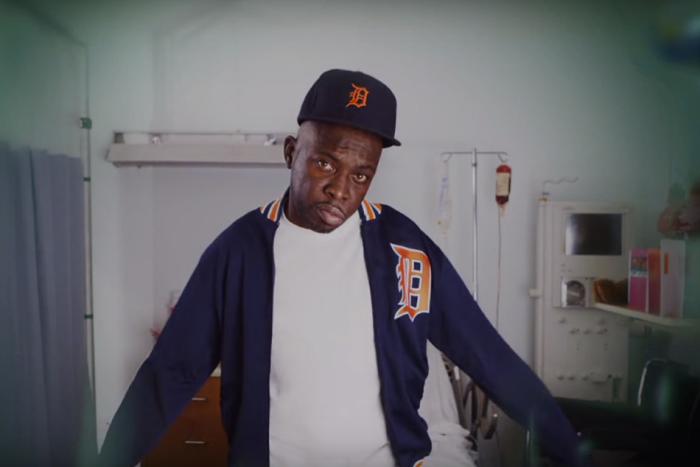Every day, they’d come by the hundreds. They’d wake up before dawn, rising from a cot at the camp, or from a friend’s floor, or a bed at a hostel. They’d brew tea or instant coffee, and then go out to catch the train or a bus. When they got to the stop closest to the state government office, they’d walk another fifteen minutes or so, past the drugstores and bakeries and döner joints, the sun now bright in the sky. There they’d join the dozens who are already there, having spent the night sleeping on a tarp or in a sleeping bag outside.
I met many refugees in Berlin last summer, where I'd been doing radio stories about the tens of thousands of people who'd been arriving in the city that year, all of whom had to pass through Das Landesamt für Gesundheit und Soziales, a compound of offices colloquially referred to as the LaGeSo. So when I wanted to speak with refugees, I would just have to go there, and there they would be, standing in the hot sun, in lines that snaked outside the buildings, waiting—sometimes days, sometimes weeks—to tell a bureaucrat who they were, where they were from, and that, yes, they were seeking asylum in Germany. And then a new kind of waiting would begin.
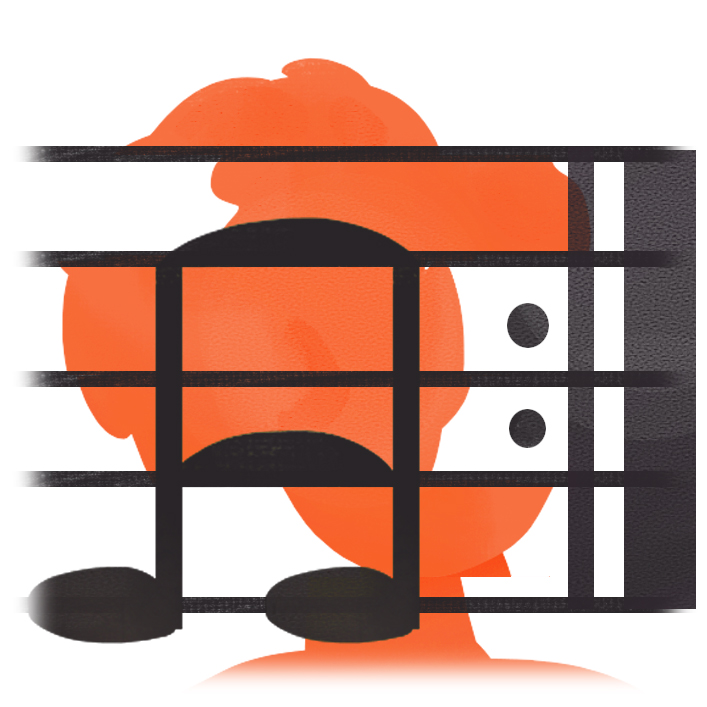
It makes me wonder if Abdou might end up in the park one day too.
Abdou (not his real name) has already been sleeping outside the office for a few days when I show up. He stands out to me because he’s wearing a gold and black Cleveland Indians hat. “It’s the OVO, the Drake colours,” I say. “Do you like Drake?” He does. He agrees to talk with me.
Abdou is in his late twenties, slightly pudgy, but with strong-looking arms. He’s from Senegal, from Dakar, from a neighbourhood where houses are destroyed routinely by floods and heavy rains. “The ghetto,” he says.
Why did you come to Germany?
“My father died in 2012. July 6. He had a heart problem. And that made things very difficult because he took care of everyone. He had two wives, because he was Muslim. My mother has two sons, and [his other wife], my aunt, has three children. And I am the first son of my father, so it is me who has to search for money, who has to try and help my family you know? But in Senegal, there are no jobs.”
So with his friends, he “broke into people’s apartments and took [their things]. Or we’d break into vehicles and take the radio. And if we saw a girl on [a phone], we’d take it and run. And we’d [sell this stuff] in the night market” in Dakar.
But, as he couldn’t help but notice, the prisons in Senegal “are filled with the youth from the ghetto.” And gang violence is common. “One day my friend was stabbed by a knife. He was in the hospital for two months.”
Abdou decides to leave Senegal. He travels to Morocco where he meets some other Senegalese, and Nigerians, and Cameroonians who also want to get to Europe.
Eventually, ten of them buy a small rubber boat. They paddle across the Strait of Gibraltar to Spain because they can’t afford a motor.
“It is not the first time I tried to cross. It was the [tenth time] or more [for me]. The other times the Moroccan police caught us and brought us back. And so you prepare another travel. This is life.”
On this attempt, he and the others leave when it’s dark out, so they can evade the police. But by 3 a.m., they are completely lost on the water, and the waves have become dangerously high (Abdou sweeps his arm above his head to show me how high they rose over the boat). Most of the other passengers are now crying with fear.
“I like 50 Cent. I like 50 Cent because of this slogan, ‘Get Rich or Die Tryin’,’ because I live that. The slogan of 50 Cent is my slogan."
“That was their first time on the water. And my role is to speak to them, and to try to keep them calm. If all the people cry, we will fall in the water. And they won’t keep calm because they can’t swim.”
You can swim?
“Yeah, I swim.”
He tells me he comes from a long line of people who made their living from the water—fishers, mainly. So he was taught to swim as a young child. And knowing he can swim, and knowing he comes from people that know the water, he remains calm on a boat lost at sea.
A few hours later, the Spanish coast guard discovers them and takes them to a camp in Spain. At this point, he’s vague on the details, but he says he moved through Spain and France and Belgium before getting to Berlin.
“I have no friends in Germany. I sleep in the streets. But I think I will get my papers, and get a job, or study. I think [this is] a good situation.”
What if you don’t get your papers for a long time? Do you think you would have to break the law to make money, like you did back home?
“Nowadays I can say I am responsible. Because I am only person who can help my family, so I don’t want to do something that puts me in jail. My mother, she tells me that too—not to do anything bad for money.”
Do you talk to your mother often?
“Yes, I call my family often. And if I have some money, I send it to them. Because if I have nothing, no problem.”
We wrap things up. I ask him his favourite Drake song.
“I like the song with Nicki Minaj.”
"Truffle Butter"?
“Yeah, I love this song.”
Is Drake your favourite rapper?
“I like 50 Cent. I like 50 Cent because of this slogan, ‘Get Rich or Die Tryin’,’ because I live that. The slogan of 50 Cent is my slogan. Life is difficult. If you are trying to build a future, life is very, very difficult. When I left to come here, there were two options: die or arrive. Because going out on the water is very dangerous. I have friends who die in the water. But some arrive.”
Interviews have been edited for clarity.

